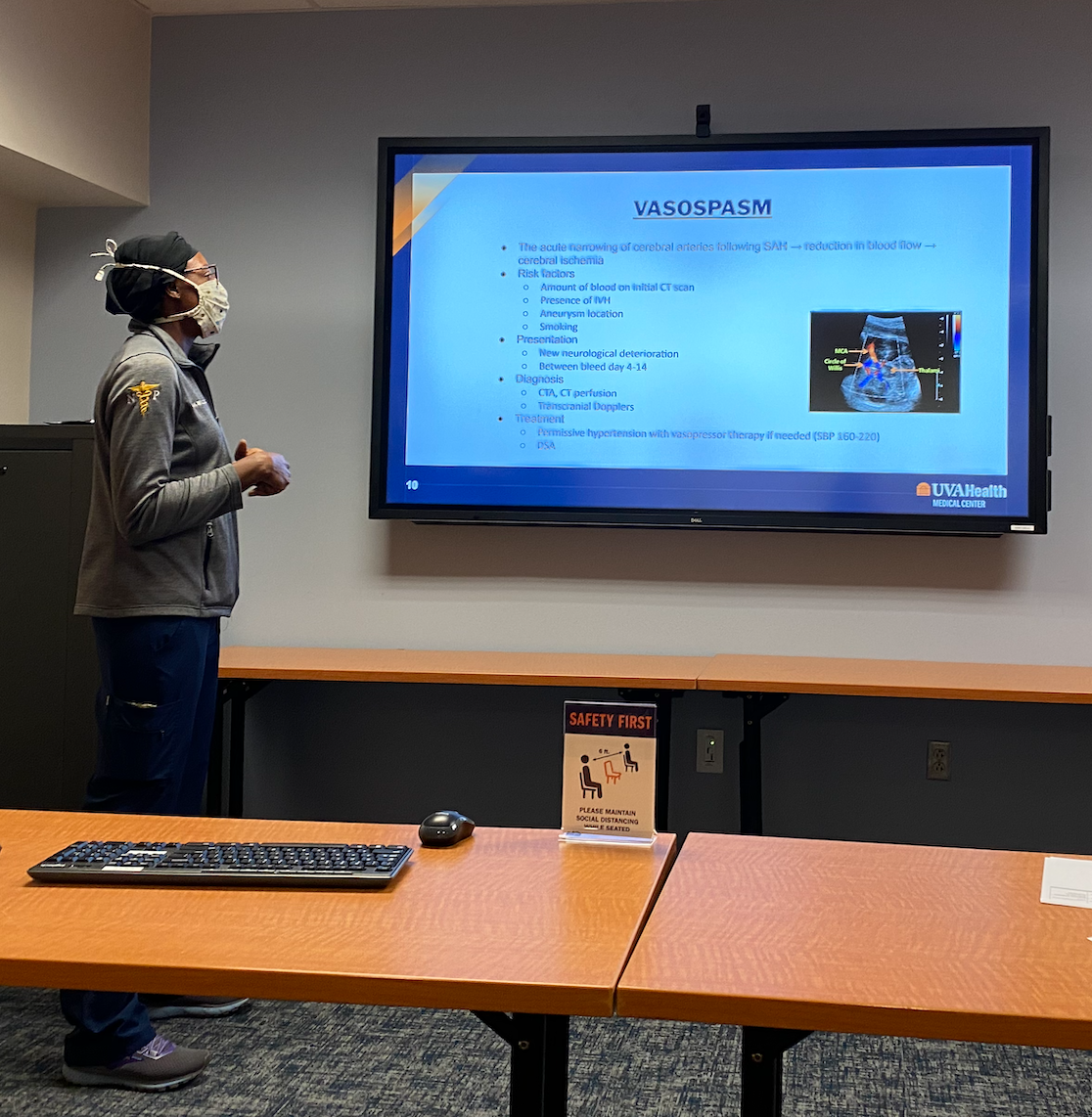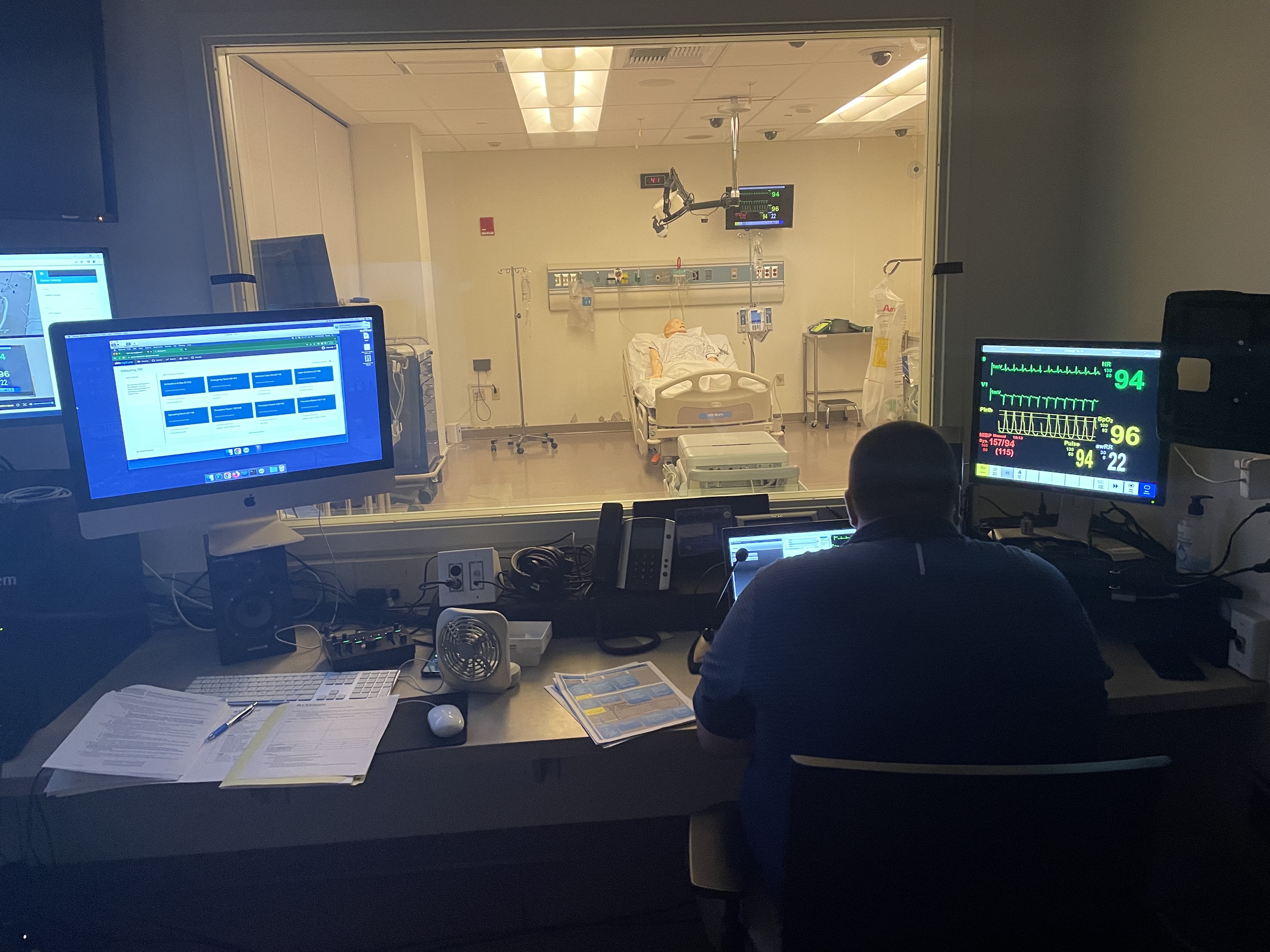Clinical Rotations
APP Fellows rotate throughout every ICU environment within UVA Medical Center, revisiting most more than once. Fellows will also rotate with experts in specialty services such as thoracic and abdominal transplant, infectious disease, procedural experiences, and the option for two months of elective time to explore new areas of medicine or to simply revisit a previous rotation experience. Fellows are required to take a patient load under the guidance and supervision of a designated preceptor, increasing their patient load and level of responsibility throughout the program as determined by their competency and overall clinical development. Fellows are evaluated on their clinical performance and competencies after each rotation.
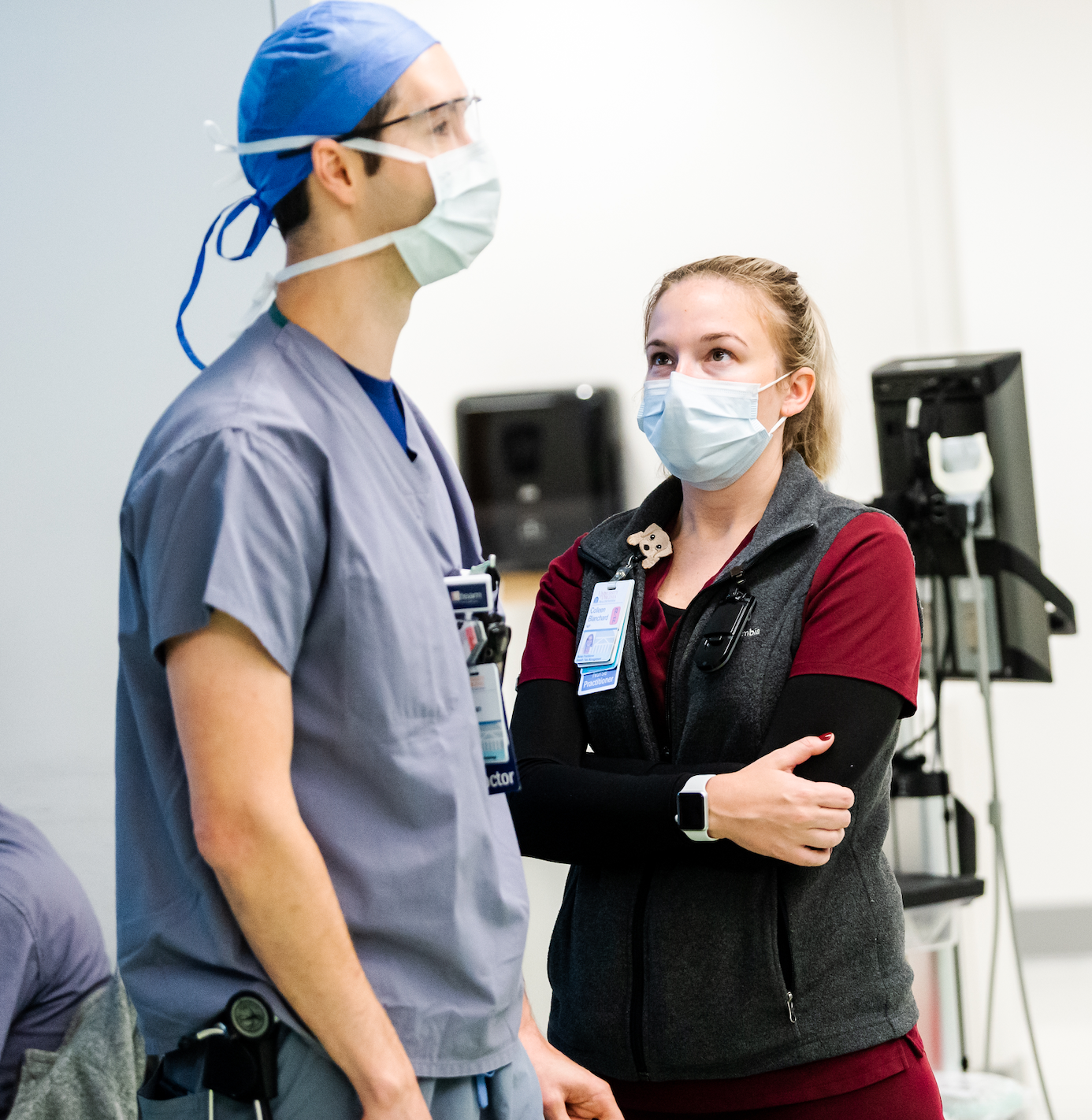
Educational Lectures
APP Fellows attend weekly lecture content as well as adjunct lecture opportunities in partnership with UVA's Anesthesia Critical Care Fellowship program, and local lecture opportunities while progressing through their clinical rotation blocks. Lecture content spans across common and complex pathologies, managing difficult conversations, pharmaceutical agents commonly used in critical care, or understanding the indications and functions of therapies such as mechanical circulatory support devices for cardiogenic shock.
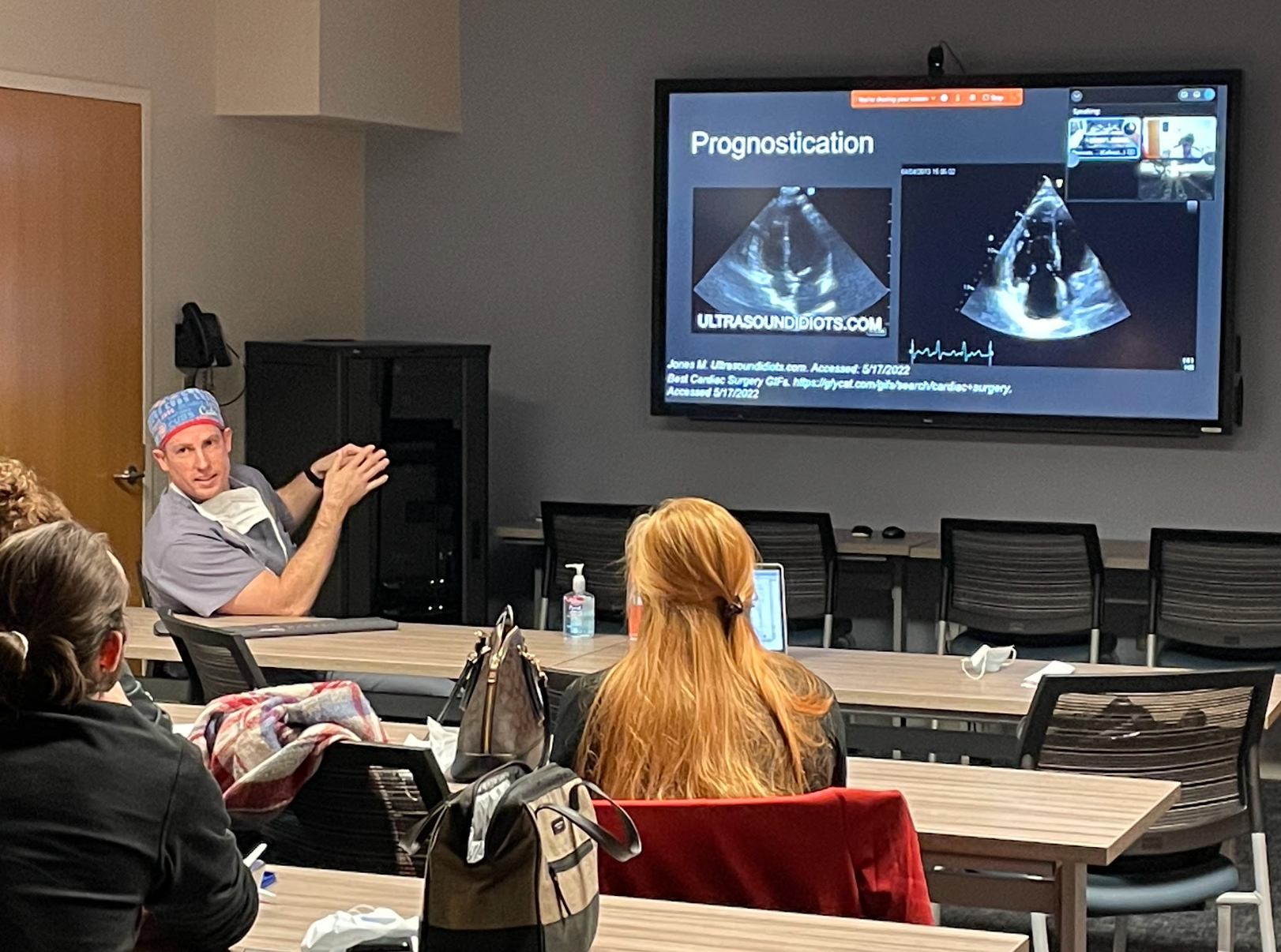
Skills Labs
Critical Care APP Fellows participate in one small group 4-hour skills lab session per month. Skills labs are comprised of pre-work activities, lecture, and hands-on training in a controlled setting. Fellows are evaluated on select procedures throughout the course of the program to gauge individual procedural development. CME's are offered for these activities.
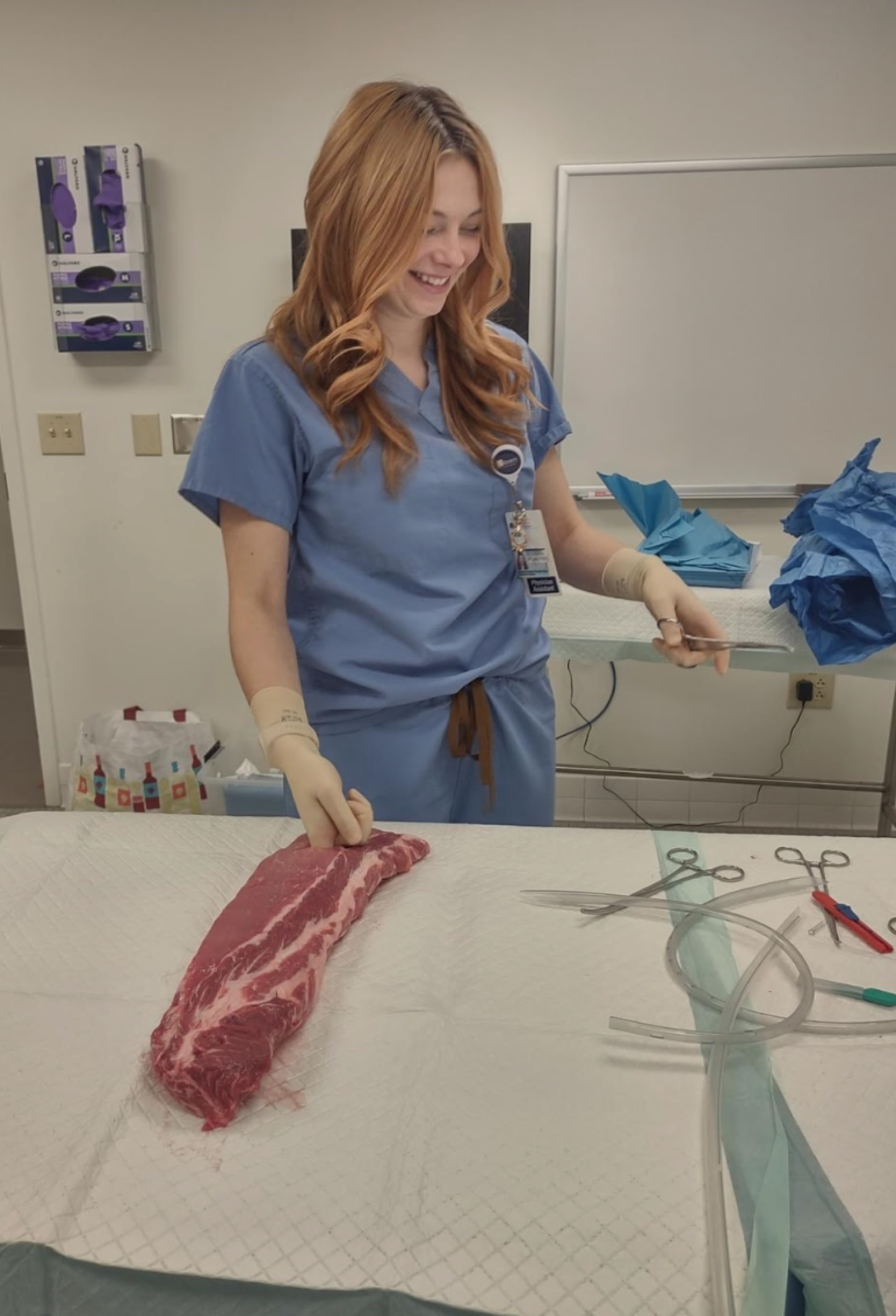
Skills sessions include:
- Central line placement
- Arterial line placement
- Chest tube and pigtail catheter placement
- Lumbar puncture
- Paracentesis
- Fiberoptic bronchoscopy
- Suturing
- Echocardiography
- FAST Exam
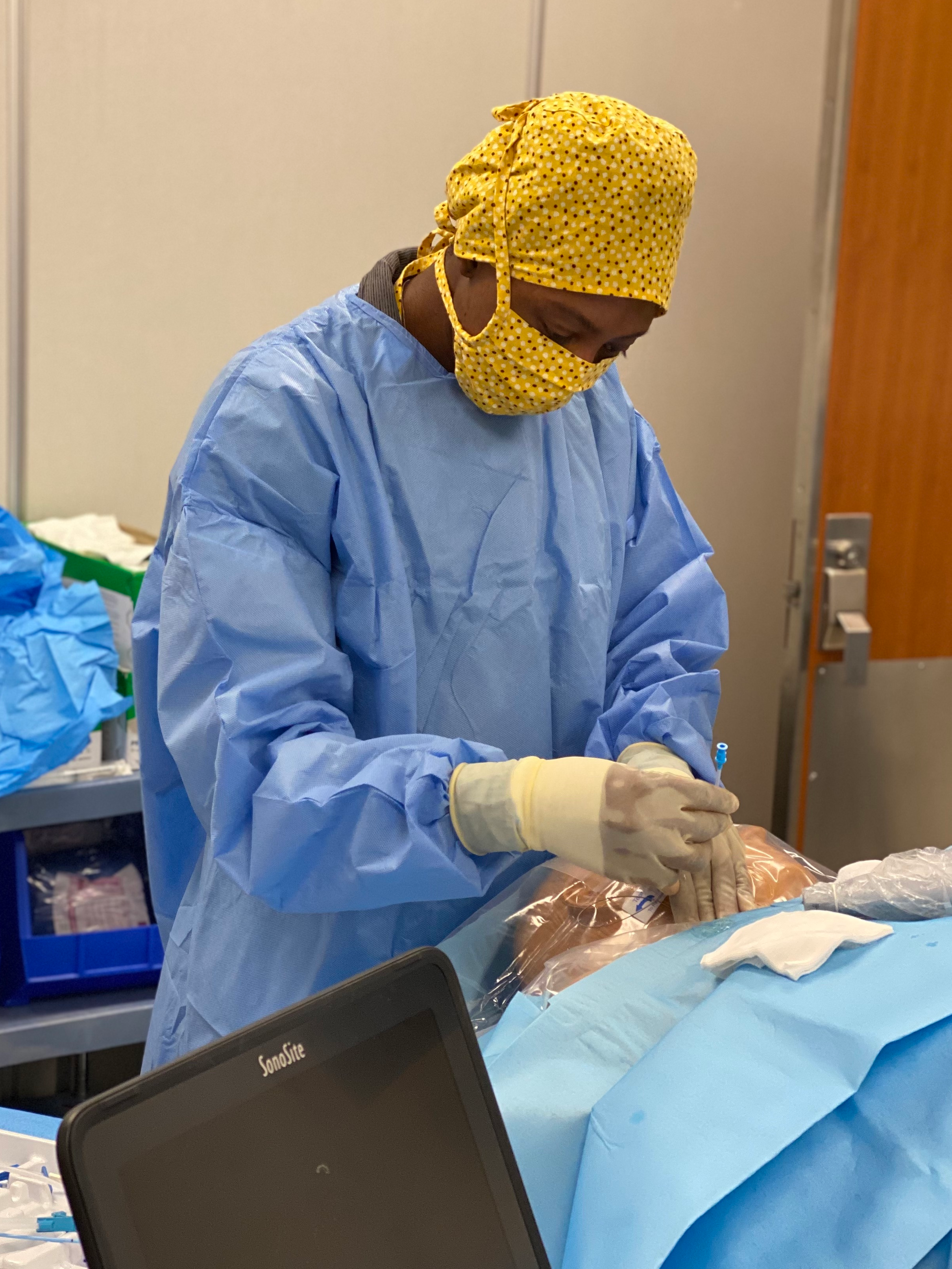
Point-of-Care Ultrasound (POCUS)
Point-of-Care Ultrasound has become an increasingly essential skill utilized at the bedside in the critical care environment. Our program incorporates extensive POCUS training through didactic experiences such as lectures, written resources and teaching materials, online didactic programs, virtual reality simulators, and hands-on, one-on-one training and instruction with a senior sonographer to refine the basic skills and techniques at the bedside. APP fellows are expected to log their imaging experiences throughout the program and are tested on a quarterly basis to assess their development of this important skill.
Ultrasound training includes:
- Bedside echocardiography
- Focused Assessment with Sonography in Trauma (FAST) and Extended FAST Exams
- Lung Imaging
- Vascular Imaging
- Procedural techniques
.jpg?cacheid=0.3638392894947653)
Workshops
APP fellows attend select workshops throughout the year, focusing on detailed knowledge and hands-on exposure to specific devices and tools encountered in clinical practice. Workshops consist of lecture content with hands-on sessions delivered by a subject matter expert. Workshops such as ventilator basics, external ventricular drains (EVD), pulmonary artery catheters (PA-catheter), epicardial pacing, holding difficult conversations, among others. Workshops are comprised of a didactic lecture with practical, real-patient hands-on experiences.
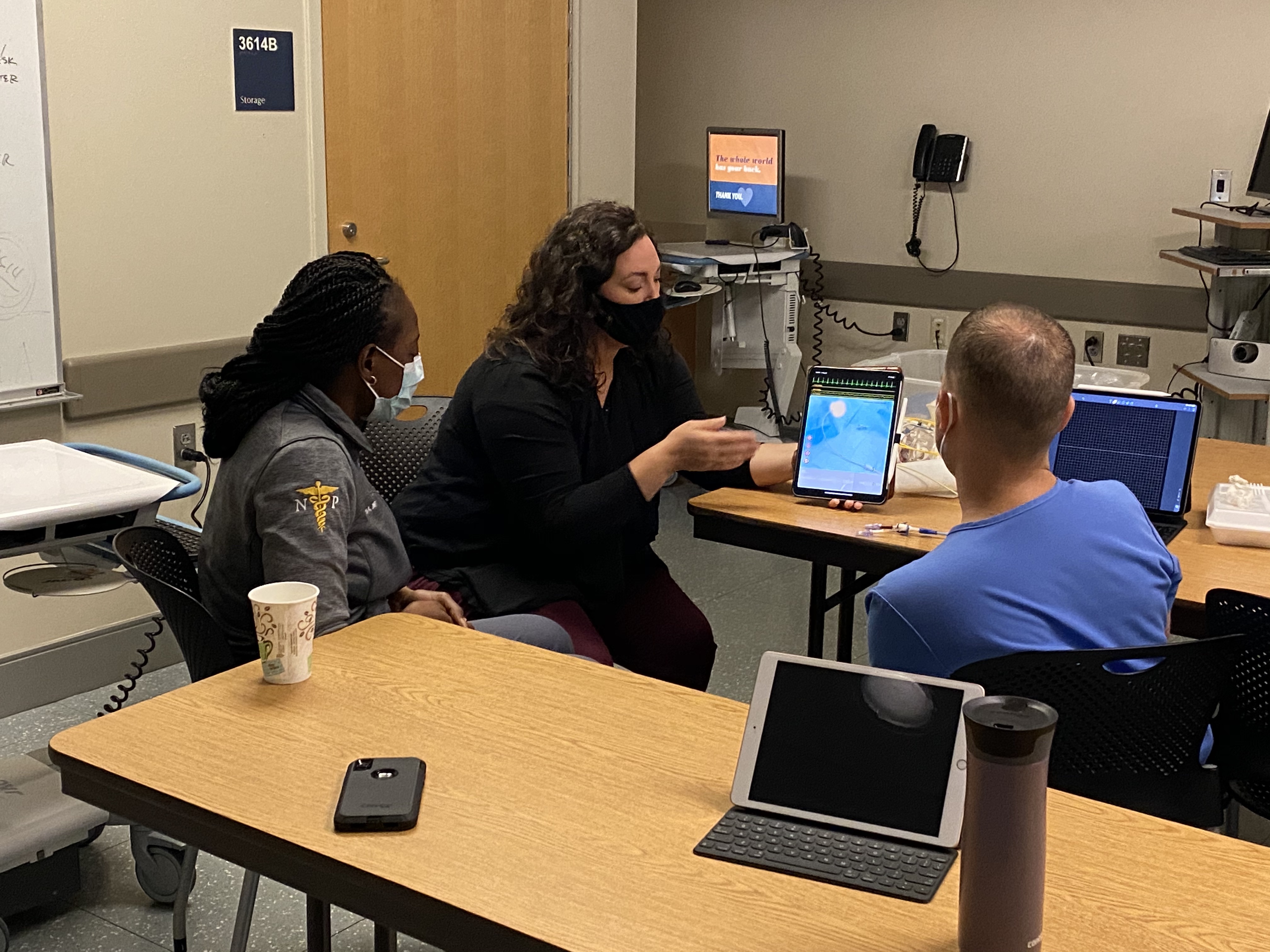
Professional Development
APP Fellows complete several adjunct activities intended to promote professional growth and enhance leadership skills. Fellows are required to submit an abstract for publication, complete an Evidence-Based Practice or Quality Improvement initiative and present to a committee, attend Quality and/or Safety meetings, attendance of a Leadership Seminar, and deliver approximately eight "teach back" presentations intended to enhance instruction and presentation skills.
